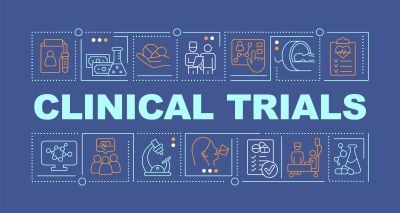Participation in Clinical Trials: Questions to Ask and Things to Know Before Committing
Participation in Clinical Trials: Questions to Ask and Things to Know Before Committing

Please visit the Anxiety & Depression Association of America (trialstoday.org) to see what clinical trials are currently underway for anxiety disorders, depression, OCD, PTSD, and bipolar disorder.
Participating in a clinical trial can be a significant decision, and there are several compelling reasons why someone might choose to do so, as well as some reasons not to participate. It must be a thoughtful decision between an individual and their healthcare provider.
Key benefits:
- Access to New Treatments: Clinical trials often provide access to cutting-edge therapies that are not yet available to the public. Participants may benefit from the latest medical advancements before they are widely released.
- Contributing to Medical Research: By participating in a clinical trial, individuals contribute to the advancement of medical knowledge. This can help improve treatment options for future patients with similar mental health disorders.
- Enhanced Care: Participants in clinical trials often receive more intensive medical care and monitoring than those receiving standard treatment. This can potentially lead to better management of their condition.
- Support from Healthcare Professionals: Clinical trials are usually conducted by experienced healthcare teams who provide comprehensive support and guidance throughout the trial process.
- Potential for Improved Outcomes: Some studies may test therapies that have the potential to be more effective than current standard treatments, offering hope for better health outcomes.
- Personal Empowerment: Participating in a clinical trial can provide a sense of agency and involvement in one’s own healthcare journey. Many individuals find it empowering to be part of the decision-making process regarding their treatment
- Access to Expert Knowledge: Participants often have the opportunity to work with leading experts in their condition, gaining insights and knowledge about their health that they might not receive in standard care settings.
- Safety and Ethical Oversight: Clinical trials are conducted under strict ethical guidelines and regulatory oversight to ensure the safety and rights of participants. Institutional Review Boards (IRBs) evaluate trials for ethical standards before they begin.
Considerations to keep in mind before participation include:
- Are visits in person or virtual?
- What are the terms of participating? Can you withdraw at any time?
- What are the studies protocols?
While there are many benefits, it’s also essential to consider potential risks, such as:
- Side Effects: New treatments may have unknown side effects. Make sure that you fully understand the side effects, potential risks, and potential benefits.
- Time Commitment: Trials can require considerable time for appointments and follow-ups.
- Uncertainty of Benefits: Not all participants will experience benefits from experimental treatments. Even if there is short-term benefit, the treatment might not be available for you to continue after the trial is completed.
Conclusion
Deciding to participate in a clinical trial should involve a thorough discussion with your healthcare provider and careful consideration of your personal and health circumstances and treatment goals. If you are considering participating in a clinical trial, you should ask as many questions as you want to understand the trial’s purpose, procedures, and potential risks and benefits.













